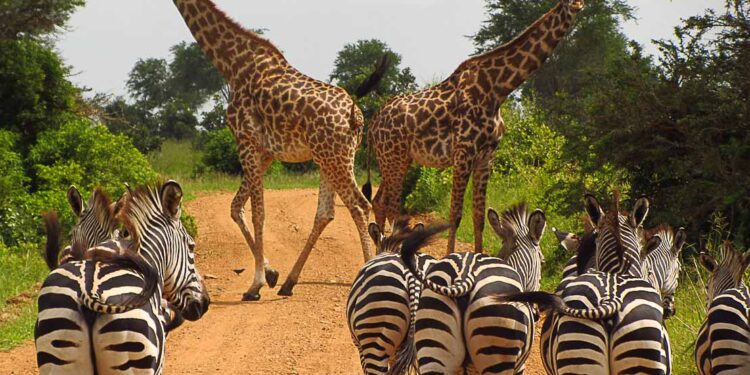Tourism in Tanzania may no longer be attractive as World Bank halted its project in the country.
The financial institution cited allegations of significant harm caused to numerous villagers as its reason for halting tourism in Tanzania.
This allegation was reported by a US-based rights group advocating for action against the project.
“The World Bank is deeply concerned about the allegations of abuse and injustice related to the Resilient Natural Resources Management for Tourism and Growth (Regrow) project in Tanzania,” said a World Bank spokesperson.
“We have recently received information that suggests breaches of our policies in the implementation of the Regrow project. We have therefore decided to suspend further disbursement of funds with immediate effect.”
The Oakland Institute has described the decision to halt the $150 million project in southern Tanzania as “long overdue,” according to the initial report by Associated Press News. The project aimed to improve natural resource management and tourism assets in a remote area.
The suspension took effect on April 18, with at least $100 million already disbursed since the project commenced in 2017.
What You Should Know
The REGROW project, also known as the project criticized by the Oakland Institute, has faced scrutiny due to documented rights abuses experienced by Indigenous communities in the vicinity. In their report released in November 2023, the Oakland Institute accused the World Bank of neglecting to tackle concerns like extrajudicial killings and sexual assaults that have arisen alongside the expansion of Ruaha National Park, an integral part of the REGROW initiative.
According to recent correspondence between the World Bank and the Oakland Institute, seen by The Associated Press(AP), the lender confirmed the suspension of further disbursements to REGROW “until we are confident that the project is upholding our environmental and social standards.”
Anuradha Mittal, the Executive Director of the Oakland Institute, praised the World Bank’s choice as a triumph for marginalized communities in Tanzania. She emphasized that this decision serves as a strong message to the Tanzanian government regarding the repercussions of violating human rights.
Further Analysis
The report by the Oakland Institute revealed unsettling occurrences, such as disappearances and extrajudicial killings purportedly executed by park rangers. Additionally, the investigation brought to light instances of sexual assaults against women.
It also said that despite the World Bank announcing an investigation, the Tanzanian government moved forward in October with plans to redraw the boundaries of the national park, which would result in 21,000 people facing eviction.
The institute said their research shows other abuses have also continued, including the killing of a 21-year-old cattle herder in October and the seizure and sale of thousands of cattle this year.
READ MORE: Dr Arikana, Enabulele, Others Team Up For Ubuntu Awakening Summit
“The government’s plan to expand the park cannot go forward against the will of local communities, who will lose everything from such an expansion,” said Mittal. “In addition to preventing forced evictions, the bank must focus on how to remedy the harms caused to the villagers who have lost loved ones to ranger violence or had their lives devastated by livelihood restrictions.”
Also, allegations were made against government authorities for confiscating and selling substantial quantities of livestock, thereby imposing economic strain on pastoralists and compelling them to abandon the region.
Tanzania heavily depends on tourism to support its budget, which has resulted in significant endeavors to establish national parks. However, these initiatives have frequently disregarded the welfare of local communities. Instances of forceful evictions, like the displacement of 70,000 Maasai from their grazing lands in the Loliondo region to facilitate trophy hunting, have been brought to attention by Amnesty International and various other organizations.
The push to improve tourism has ignited debate and brought attention to potential civilian rights violations, leading to a closer examination of the actions taken by local authorities. The suspension of funding for the REGROW project by the World Bank underscores the necessity for increased accountability and the protection of human rights in Tanzania’s development endeavours.










